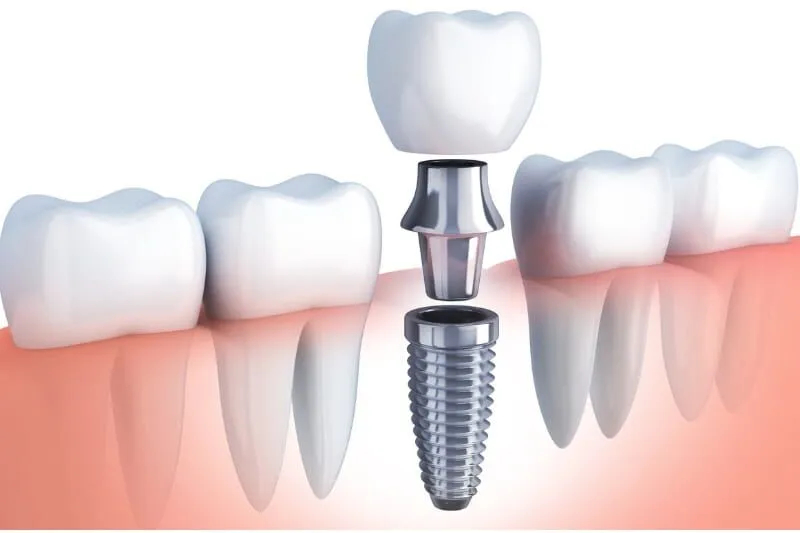
Oral surgery encompasses a range of specialized procedures aimed at diagnosing, treating, and correcting complex dental and oral conditions. From tooth extractions and dental implants to corrective jaw surgery and oral pathology management, oral surgeons are highly skilled professionals trained to address a variety of oral health concerns. In this comprehensive guide, we’ll explore the different types of oral surgery procedures, their indications, benefits, and what patients can expect before, during, and after treatment.
Types of Oral Surgery Procedures:
- Tooth Extractions: Tooth extraction is a common oral surgery procedure performed to remove damaged, decayed, or problematic teeth that cannot be saved or restored. Whether due to severe decay, advanced periodontal disease, trauma, or orthodontic reasons, tooth extraction may be necessary to protect oral health and prevent further complications.
- Dental Implants: Dental implant surgery involves the placement of titanium posts into the jawbone to serve as artificial tooth roots for supporting dental crowns, bridges, or dentures. Dental implants offer a durable and natural-looking solution for replacing missing teeth and restoring oral function, aesthetics, and confidence.
- Corrective Jaw Surgery (Orthognathic Surgery): Corrective jaw surgery is performed to correct abnormalities of the jawbones and bite alignment. This may include procedures such as orthodontic pre-surgical preparation, jaw repositioning, bone reshaping, and soft tissue reconstruction to improve facial aesthetics, function, and overall oral health.
- Wisdom Teeth Removal: Wisdom teeth, also known as third molars, often require extraction due to impaction, crowding, or infection. Oral surgeons perform wisdom teeth removal procedures to alleviate pain, prevent dental issues, and preserve oral health.
- Oral Pathology Management: Oral surgeons diagnose and treat various oral and maxillofacial conditions, including oral cancers, cysts, tumors, and lesions. Surgical intervention may be necessary to remove abnormal tissues, perform biopsies, or reconstruct defects following tumor removal.
- Bone Grafting and Sinus Lifts: Bone grafting procedures involve augmenting deficient jawbone tissue to improve bone volume and density for successful dental implant placement. Sinus lifts, or sinus augmentation, are performed to increase bone height in the posterior maxilla to support dental implants in the upper jaw.
- TMJ (Temporomandibular Joint) Surgery: TMJ surgery may be recommended for patients with severe or persistent temporomandibular joint disorders (TMD) that do not respond to conservative treatments. Surgical interventions may include arthroscopy, joint replacement, or joint repositioning procedures to alleviate pain and restore function.
- Cleft Lip and Palate Repair: Oral surgeons collaborate with multidisciplinary teams to perform cleft lip and palate repair surgeries for infants and children born with congenital craniofacial anomalies. These procedures aim to restore facial symmetry, improve speech development, and enhance quality of life.
Benefits of Oral Surgery:
- Restored Oral Function: Oral surgery and Root Canals procedures address underlying dental and oral health issues to restore proper chewing, speaking, and swallowing function.
- Enhanced Aesthetics: Surgical interventions can improve facial symmetry, balance, and aesthetics by correcting dental and skeletal abnormalities.
- Pain Relief: Oral surgery can alleviate pain and discomfort associated with dental problems, TMJ disorders, and facial trauma.
- Improved Oral Health: By removing diseased or damaged tissues, repairing defects, and restoring missing teeth, oral surgery promotes long-term oral health and well-being.
- Increased Confidence: Successful oral surgery outcomes can boost self-esteem and confidence by restoring a healthy, functional, and attractive smile.
- Enhanced Quality of Life: Patients experience improved quality of life and overall well-being following successful oral surgery procedures, allowing them to enjoy life to the fullest.
What to Expect Before, During, and After Oral Surgery:
- Preoperative Evaluation: Before oral surgery, the oral surgeon conducts a comprehensive examination, including medical history review, diagnostic imaging, and treatment planning. Patients may undergo preoperative tests, such as blood work and dental impressions, to ensure they are healthy and prepared for surgery.
- Anesthesia and Sedation: Depending on the complexity of the procedure and patient preferences, various anesthesia and sedation options may be offered to ensure comfort and relaxation during surgery. These may include local anesthesia, intravenous (IV) sedation, or general anesthesia.
- Surgical Procedure: During oral surgery, the oral surgeon performs the planned procedure using advanced surgical techniques and specialized instruments. Patient safety, comfort, and optimal outcomes are prioritized throughout the surgical process.
- Postoperative Care: After surgery, patients receive postoperative care instructions, including pain management recommendations, dietary guidelines, and oral hygiene instructions. Patients are advised to rest, avoid strenuous activities, and follow all postoperative guidelines to promote healing and minimize complications.
- Follow-up Visits: Patients are scheduled for follow-up visits to monitor healing progress, assess treatment outcomes, and address any concerns or complications that may arise. Additional treatments or adjustments may be recommended as needed to optimize results and ensure long-term success.
Conclusion: Oral surgery and Bone Grafting plays a vital role in restoring oral health, function, and aesthetics for patients with a variety of dental and maxillofacial conditions. From tooth extractions and dental implants to corrective jaw surgery and oral pathology management, oral surgeons provide specialized care to address complex oral health issues and improve quality of life. By understanding the types of oral surgery procedures available, their benefits, and what to expect before, during, and after treatment, patients can make informed decisions about their oral health and well-being. Remember, oral surgery is a collaborative effort between the patient, oral surgeon, and dental team to achieve optimal outcomes and ensure long-term oral health success.



















